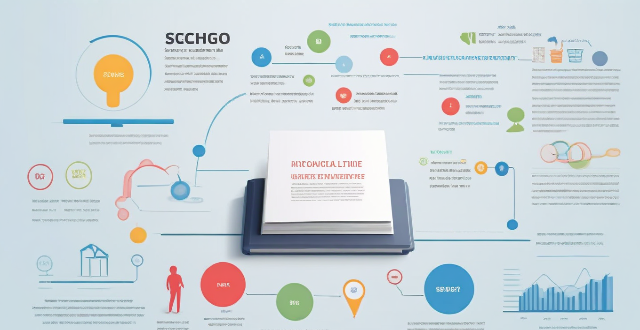Help Procrastination

Is there a connection between procrastination and mental health ?
Procrastination is a common behavior that can have negative consequences on mental health, including increased stress and anxiety, depression, low self-esteem, and poor time management skills. To overcome procrastination, one can set realistic goals, create a schedule, eliminate distractions, use timers, reward themselves, seek support, practice mindfulness, and be kind to themselves.

How can I overcome procrastination and stay motivated to study ?
Procrastination is a common problem that affects many students. It can be challenging to stay motivated and focused on your studies, especially when there are so many distractions around you. However, there are several strategies you can use to overcome procrastination and stay motivated to study. Here are some tips: - Set clear goals for yourself. Make sure your goals are specific, measurable, achievable, relevant, and time-bound (SMART). For example, instead of saying "I want to do well in my math class," say "I want to score at least 90% on my next math test." Having a clear goal will help you stay focused and motivated. - Break tasks into smaller, more manageable chunks. Large tasks can be overwhelming and lead to procrastination. To avoid this, break your tasks into smaller, more manageable chunks. For example, if you have a research paper to write, break it down into smaller tasks such as selecting a topic, conducting research, creating an outline, writing the introduction, etc. Completing each small task will give you a sense of accomplishment and keep you motivated. - Create a study schedule. Creating a study schedule can help you stay organized and on track. Allocate specific times for studying, breaks, and other activities. Stick to your schedule as much as possible, but also be flexible enough to adjust it if necessary. Having a plan will help you avoid wasting time and reduce the likelihood of procrastination. - Eliminate distractions. Distractions can easily lead to procrastination. To avoid this, eliminate distractions such as social media, television, or video games during your study time. Find a quiet place where you can focus without interruptions. Turn off your phone or put it on silent mode to avoid distractions from notifications. - Use time management techniques. Using time management techniques such as the Pomodoro technique or the Eisenhower matrix can help you stay focused and productive. The Pomodoro technique involves working for 25 minutes and then taking a five-minute break. The Eisenhower matrix helps you prioritize tasks based on their urgency and importance. These techniques can help you manage your time effectively and reduce procrastination. - Reward yourself. Rewarding yourself after completing a task can help you stay motivated. Set up rewards for yourself after completing each task or reaching a milestone. For example, you could treat yourself to a favorite snack or watch an episode of your favorite TV show after finishing a study session. This will give you something to look forward to and keep you motivated. - Seek support. Finally, seek support from friends, family, or teachers if you're struggling with procrastination. They can offer encouragement, advice, or accountability to help you stay on track. Joining a study group or finding a study partner can also provide motivation and support. In conclusion, overcoming procrastination requires discipline, planning, and self-motivation. By setting clear goals, breaking tasks into smaller chunks, creating a study schedule, eliminating distractions, using time management techniques, rewarding yourself, and seeking support, you can stay motivated and focused on your studies.

Are there any books or resources that can help me overcome procrastination ?
This article explores some books and resources that can help you overcome procrastination. The first book, "The Procrastination Equation" by Piers Steel, provides a comprehensive understanding of procrastination and offers practical tips and strategies to overcome it. The second book, "Eat That Frog!" by Brian Tracy, offers 21 practical strategies for overcoming procrastination and getting more done in less time. The third book, "The Now Habit" by Neil Fiore, offers a unique approach to overcoming procrastination by focusing on the present moment and enjoying guilt-free play. The fourth book, "The War of Art" by Steven Pressfield, offers a powerful perspective on procrastination as an inner creative battle that needs to be won. By implementing these strategies and techniques, you can break free from the cycle of procrastination and start getting things done.

How can I break the cycle of procrastination and start being more productive ?
Procrastination is a common problem that affects many people. It's a habit that can be difficult to break, but with the right strategies, it's definitely possible to increase productivity and get more done. Here are some tips to help you break the cycle of procrastination: 1. Set clear goals for yourself. Write down exactly what you want to achieve and by when. This will give you a sense of direction and make it easier to focus on the task at hand. 2. Prioritize tasks based on their importance and urgency. Start with the most important tasks first and work your way down the list. This will help you stay motivated and focused, as you'll see progress being made. 3. Use time management techniques such as the Pomodoro technique or time blocking to stay on track and avoid distractions. These techniques involve breaking down your work into smaller, manageable chunks and taking regular breaks to recharge. 4. Eliminate distractions by turning off notifications on your phone and computer, finding a quiet place to work, and letting others know that you need some uninterrupted time to focus on your tasks. 5. Hold yourself accountable by finding someone who can hold you accountable for your progress, such as a friend, family member, or colleague. Check in with them regularly to report on your progress and ask for support if needed. 6. Reward yourself for completing tasks. This could be something small like taking a break to read a book or watch an episode of your favorite TV show. Rewards can help motivate you to keep going and make the process of breaking the cycle of procrastination more enjoyable.

How can I avoid procrastination and stay motivated to learn ?
Procrastination is a common problem that affects many people, especially when it comes to learning. To avoid procrastination and stay motivated to learn, set clear goals, create a study schedule, eliminate distractions, use rewards and incentives, find a study group or partner, and practice self-care.

How does procrastination affect productivity and what can be done to avoid it ?
Procrastination negatively impacts productivity by leading to decreased efficiency, increased stress levels, poor quality work, and missed opportunities. To combat procrastination, individuals should set clear goals, prioritize tasks, break down larger tasks into smaller chunks, eliminate distractions, use time management techniques, and hold themselves accountable. Implementing these strategies can help improve productivity and achieve long-term success.

How can I overcome procrastination ?
Procrastination, or the act of delaying or postponing tasks, is a common issue that affects many people. It can be challenging to overcome, but with some strategies and techniques, it's possible to break free from this habit and become more productive. Here are some tips on how to overcome procrastination: 1. Identify the Root Cause: The first step in overcoming procrastination is to identify its root cause. Ask yourself why you are procrastinating. Is it because the task is boring, difficult, or uninteresting? Or is it because you lack motivation or feel overwhelmed by the task? Once you have identified the reason, you can take steps to address it. 2. Set Clear Goals: Setting clear goals is essential for overcoming procrastination. When you have a specific goal in mind, it becomes easier to focus your efforts and avoid distractions. Make sure your goals are realistic, measurable, and time-bound so that you can track your progress and stay motivated. 3. Break Tasks into Smaller Chunks: Breaking tasks into smaller chunks makes them more manageable and less daunting. Instead of trying to tackle a large project all at once, divide it into smaller tasks that you can complete one at a time. This will help you feel more accomplished and motivated as you make progress towards your goal. 4. Use Time Management Techniques: Effective time management is crucial for overcoming procrastination. Use techniques such as the Pomodoro Method, where you work for 25 minutes and then take a five-minute break, or the Eisenhower Matrix, which helps you prioritize tasks based on their urgency and importance. These techniques can help you stay focused and avoid distractions while working on tasks. 5. Eliminate Distractions: Distractions are one of the biggest obstacles to productivity. To overcome procrastination, eliminate as many distractions as possible while working on tasks. Turn off your phone, close unnecessary tabs on your computer, and find a quiet place to work where you won't be interrupted. 6. Reward Yourself: Finally, reward yourself for completing tasks or reaching milestones. This will help you stay motivated and maintain your focus on your goals. Choose rewards that are meaningful to you, whether it's taking a break to read a book or treating yourself to a favorite snack. In conclusion, overcoming procrastination requires identifying its root cause, setting clear goals, breaking tasks into smaller chunks, using time management techniques, eliminating distractions, and rewarding yourself for progress made. By implementing these strategies, you can become more productive and achieve your goals without the hindrance of procrastination.

What are some effective strategies for beating procrastination ?
Strategies for Beating Procrastination include setting clear goals, breaking tasks into smaller chunks, using time management tools, eliminating distractions, rewarding oneself, getting an accountability partner, and practicing mindfulness. These strategies can help individuals overcome procrastination and increase productivity by focusing on specific tasks, prioritizing activities, avoiding interruptions, staying motivated, holding oneself accountable, and becoming more aware of their thoughts and feelings.

What are the consequences of chronic procrastination ?
Procrastination is a common behavioral pattern where individuals delay or put off tasks until the last minute. While occasional procrastination may not cause significant harm, chronic procrastination can lead to various negative consequences. In this article, we will discuss the potential effects of persistent procrastination on an individual's life. Chronic procrastination often results in increased stress levels due to the accumulation of unfinished tasks and deadline pressures. Procrastination leads to poor time management skills, as individuals tend to underestimate the time required to complete tasks. Chronic procrastination can also have a negative impact on an individual's self-efficacy, or their belief in their ability to succeed. Procrastination can strain personal relationships, both professionally and personally. Colleagues and friends may become frustrated with the individual's lack of commitment and follow-through, leading to conflicts and misunderstandings. In academic settings, chronic procrastination can lead to poor grades and missed opportunities for learning. Similarly, in professional environments, consistent procrastination can hinder career advancement and limit job opportunities. Chronic stress from procrastination can take a toll on an individual's physical health. The constant pressure and anxiety associated with procrastination can contribute to issues such as headaches, digestive problems, and weakened immune function.

How can I identify the root cause of my procrastination and address it effectively ?
This guide provides a comprehensive understanding of procrastination, its common causes, and strategies to address it. It emphasizes the importance of identifying personal root causes such as fear of failure, perfectionism, lack of motivation, distraction, and poor time management. The guide offers targeted strategies for each cause, including breaking tasks into smaller steps, setting realistic standards, finding purpose, minimizing distractions, and using time management tools. It concludes by encouraging patience, self-awareness, and consistent effort in overcoming procrastination.

How can I overcome procrastination and lack of motivation when it comes to studying ?
Overcoming procrastination and lack of motivation in studying requires discipline, planning, and self-awareness. By setting clear goals, creating a study plan, eliminating distractions, taking breaks, and rewarding yourself, you can improve your productivity and focus while studying. Remember to be patient with yourself and celebrate small successes along the way. With consistent effort and dedication, you can overcome these challenges and achieve your academic goals.

Why do people procrastinate and how can they stop ?
Procrastination is a common behavior influenced by factors like lack of motivation, fear of failure or success, difficulty with self-regulation, and environmental distractions. To overcome procrastination, individuals can set clear goals, improve time management, boost motivation, address emotional barriers, and develop self-regulation skills. Consistent implementation of these strategies can lead to increased productivity and reduced procrastination over time.

How can I stick to my study schedule without getting distracted ?
Sticking to a study schedule without getting distracted requires discipline, motivation, and the right strategies. Here's how you can stay on track with your studies: 1. Setting clear goals: Define objectives and break them down into smaller parts to make progress without feeling overwhelmed. 2. Creating a conducive environment: Minimize distractions by finding a quiet space, turning off notifications, and organizing your study area. 3. Utilizing time management techniques: Use a planner to allocate specific time slots for studying and implement the Pomodoro Technique to maintain concentration and prevent burnout. 4. Staying motivated: Give yourself small rewards after completing study sessions or achieving milestones, and visualize success to provide the necessary push to continue. 5. Taking care of yourself: Incorporate regular exercise and ensure adequate sleep to improve mental clarity and concentration. 6. Eliminating procrastination: Tackle procrastination by addressing its root cause and starting with the hardest task to reduce the likelihood of procrastination. By consistently applying these strategies, you can enhance your focus and efficiency in your academic pursuits. Remember, consistency is key, so persevere and stay committed to your study schedule for the best results.

How can self-assessment help me set realistic goals for myself ?
The article discusses the importance of self-assessment in goal setting. By identifying one's strengths and weaknesses, evaluating progress, and setting realistic goals, individuals can increase their chances of success and avoid feeling overwhelmed or discouraged. The article provides tips for each step of the self-assessment process, including breaking larger goals into smaller steps, prioritizing based on importance and urgency, being specific about what is wanted to achieve and why, considering potential obstacles, and developing strategies to overcome them. Ultimately, self-assessment helps individuals gain a better understanding of their capabilities and what steps need to be taken to achieve their goals.

What are some tips for staying motivated during a home fitness routine ?
Staying motivated during a home fitness routine can be challenging, but there are several tips that can help you stay on track and achieve your fitness goals. Here are some of the most effective strategies: 1. Set Clear Goals: Start by setting clear and specific fitness goals. This will give you something to work towards and help you stay focused. Break down your long-term goals into smaller, more manageable short-term goals. This will make it easier to track your progress and keep you motivated. 2. Create a Schedule: Create a schedule for your workouts and stick to it as much as possible. This will help you establish a routine and make exercise a part of your daily life. Plan your workouts ahead of time so that you know exactly what you need to do each day. This will save you time and reduce the likelihood of procrastination. 3. Mix Up Your Workouts: Incorporate different types of exercises into your routine to keep things interesting and challenge different muscle groups. Try new activities or exercises to keep your workouts fresh and exciting. 4. Track Your Progress: Keep a fitness journal where you record your workouts, including the exercises you performed, the number of sets and reps, and any other relevant information. This will help you see your progress over time and stay motivated. Use technology such as fitness apps or devices to track your progress and set reminders for your workouts. 5. Find an Accountability Partner: Find a friend or family member who shares your fitness goals and work out together. Having someone to hold you accountable can be a powerful motivator. Join online fitness communities where you can share your progress, get advice, and find support from others who are working towards similar goals. 6. Reward Yourself: Celebrate your achievements, no matter how small they may seem. Reaching a new personal best or completing a challenging workout deserves recognition. Set up incentives for yourself, such as treating yourself to a massage or buying new workout clothes after reaching a specific goal. 7. Make It Fun: Create a playlist of your favorite songs to listen to during your workouts. Music can help you stay energized and focused. If you find traditional workouts boring, try watching fitness videos or following along with online workout classes. 8. Focus on the Benefits: Keep in mind why you started your fitness journey in the first place. Whether it's to improve your health, gain confidence, or achieve a specific goal, reminding yourself of your reasons for exercising can help you stay motivated. Visualize yourself achieving your fitness goals and imagine how great it will feel when you finally reach them. This can provide extra motivation when you need it most. By following these tips, you can stay motivated and committed to your home fitness routine, ultimately achieving the results you desire.

How can I stay motivated and avoid procrastinating on important tasks ?
Strategies to overcome procrastination include setting clear goals, creating a schedule or to-do list, eliminating distractions, and staying accountable. Breaking down goals into smaller tasks can also help in maintaining motivation.

What role does self-discipline play in following a study plan ?
Self-discipline is crucial in following a study plan effectively. It involves setting goals, prioritizing tasks, maintaining focus on objectives, and avoiding distractions. By breaking down long-term goals into smaller, manageable tasks and allocating time wisely, self-disciplined individuals can maximize productivity and achieve academic success efficiently. Consistency, overcoming procrastination, and staying motivated are also key factors in sticking to a study plan. Developing strong self-discipline skills can help students reach their full potential.

Are there any foods that can help alleviate stress ?
The text provides a summary of foods that can help alleviate stress, including dark chocolate, avocado, blueberries, salmon, and chamomile tea. Each food is explained in terms of its benefits and recommended intake. The article emphasizes that while these foods may help reduce stress levels, they should not be used as a substitute for professional medical advice or treatment.

What are some effective methods for reviewing and retaining information before an exam ?
Preparing for an exam can be a daunting task, but with the right strategies and techniques, it is possible to effectively review and retain information before the exam. Some effective methods for reviewing and retaining information before an exam include creating a study plan, using active learning techniques, practicing retrieval and recall, and staying motivated and avoiding procrastination. By following these methods, students can improve their chances of success on their exams.

What role does preparation play in managing exam-related stress ?
Exam-related stress is a common experience for many students, and it can have a significant impact on their performance. However, preparation is one of the most effective ways to manage this stress. In this article, we will explore the role that preparation plays in managing exam-related stress. Preparation is crucial when it comes to managing exam-related stress. It reduces anxiety, increases efficiency, improves performance, and builds resilience. To prepare for exams, start early, create a study plan, review notes and textbooks, practice with past papers, seek help if needed, take care of yourself, stay positive, visualize success, avoid procrastination, and use relaxation techniques. By following these strategies, you can prepare yourself effectively for exams and manage any related stress. Remember, preparation is key to success!

What is the Pomodoro Technique and does it really work for enhancing focus ?
The Pomodoro Technique is a time management method designed to improve focus and productivity. It involves working for 25 minutes followed by a short break, with longer breaks after every four Pomodoros. The technique aims to enhance concentration, manage time effectively, reduce procrastination, and boost overall productivity. However, its effectiveness can vary based on individual adaptability and workflow.

Does lifting weights help with weight loss ?
Weight loss is a common goal for many people, and weightlifting is one of the most popular methods. However, does lifting weights help with weight loss? This article explores the benefits and drawbacks of weightlifting as a means of weight loss. One of the main benefits of weightlifting is muscle growth, which can lead to an increase in metabolism and help with weight loss. In addition, weightlifting can also help with fat burning and improved cardiovascular health. However, there are also some potential drawbacks to weightlifting, including high initial costs, potential injuries, and a significant time commitment. If you are interested in trying weightlifting as a way to lose weight, make sure you do your research and find a program that fits your needs and lifestyle.

Can ESG principles help mitigate climate change ?
ESG principles, which stand for Environmental, SocialESG principles, which stand for Environmental, Social, have become increasingly important in These principles aim to encourage companies to operate in a more sustainable and socially responsible manner. In this context, it is worth exploring whether these principles can help mitigate climate change. The environmental aspect of ESG focuses on reducing the negative impact of business operations on the environment. This includes reducing greenhouse gas emissions, conserving natural resources, and minimizing waste generation. By promoting these practices, ESG principles can contribute to mitigating climate change in several ways: * Reducing Carbon Emissions: Companies that prioritize environmental sustainability are likely to reduce their carbon footprint by using renewable energy sources, improving energy efficiency, and investing in low-carbon technologies. This can help lower global greenhouse gas emissions, which are a major driver of climate change. * Conserving Natural Resources: By promoting sustainable resource management, ESG principles can help reduce deforestation, protect biodiversity, and conserve water resources. These actions can help maintain the health of ecosystems that play a crucial role in regulating the Earth's climate. * Minimizing Waste Generation: Encouraging companies to adopt circular economy models and reduce waste generation can help reduce the amount of greenhouse gases produced during waste disposal processes. Additionally, recycling and reusing materials can help conserve natural resources and reduce the need for new raw material extraction, further contributing to climate change mitigation. The social aspect of ESG focuses on promoting fair labor practices, human rights, and community involvement. While these principles may not directly address climate change, they can indirectly contribute to mitigating its effects by fostering a sense of corporate responsibility and encouraging companies to invest in their communities. This can lead to increased awareness and action around climate change issues, as well as support for policies and initiatives aimed at addressing the problem. The governance aspect of ESG emphasizes transparency, accountability, and ethical behavior within a company's management structure. By promoting good governance practices, ESG principles can help ensure that companies are held accountable for their environmental impact and are more likely to adopt sustainable business strategies. This can lead to increased transparency around carbon emissions reporting, better alignment between corporate goals and climate objectives, and improved stakeholder engagement on climate-related issues. In conclusion, ESG principles can certainly help mitigate climate change by promoting environmentally sustainable business practices, fostering a sense of corporate responsibility, and ensuring transparency and accountability within companies' management structures. However, it is important to note that these principles alone may not be sufficient to fully address the complex challenges posed by climate change. A comprehensive approach involving government policies, international cooperation, and individual actions will also be necessary to achieve meaningful progress in mitigating the effects of climate change.

Can sport monitoring technology help prevent injuries ?
Sport monitoring technology has become increasingly popular in recent years, with many athletes and coaches using it to improve performance and prevent injuries. This technology includes wearable devices such as fitness trackers, heart rate monitors, and GPS tracking systems, as well as more advanced technologies like motion capture systems and force plates. Sport monitoring technology works by collecting data on an athlete's movements, heart rate, and other physiological factors. This data is then analyzed to provide insights into the athlete's performance and identify areas where they may be at risk of injury. By tracking an athlete's movements and physiological factors, sport monitoring technology can identify potential injury risk factors early on, help coaches create personalized training plans for each athlete based on their individual needs and abilities, monitor recovery periods between sessions, and educate athletes and coaches about injury prevention strategies. Overall, there is evidence to suggest that sport monitoring technology can help prevent injuries in several ways. However, it is important to note that no technology can completely eliminate the risk of injury, and proper training, conditioning, and safety measures should always be prioritized.

Can exercise help manage symptoms of ADHD ?
Exercise can be a powerful tool in managing symptoms of ADHD by improving focus, reducing impulsivity, increasing energy levels, and promoting better sleep. Choosing the right type of exercise, setting realistic goals, and creating a consistent routine are essential for reaping the full benefits of physical activity for ADHD management.

What are some effective time management techniques for students ?
Effective time management techniques for students include prioritizing tasks, setting goals, creating a schedule, utilizing time management tools, minimizing distractions, and taking breaks. These strategies help students focus on important tasks, allocate time efficiently, avoid procrastination, and maintain a healthy work-life balance.

How does exercise help in managing stress ?
Stress is an inevitable part of life, but regular exercise can help manage it effectively. Exercise releases endorphins, reduces muscle tension, improves sleep quality, boosts self-esteem and confidence, provides a sense of accomplishment, and promotes social interaction. To incorporate exercise into your daily routine, start slowly, find an activity you enjoy, make it a part of your routine, mix up your routine, and don't overexert yourself. By doing so, you can reap the numerous benefits of exercise for stress management and overall well-being.

Can certain foods help reduce inflammation in athletes
Certain foods can help reduce inflammation in athletes. These include anti-inflammatory spices, fruits and vegetables, whole grains, healthy fats, and protein. It's also important to avoid processed foods, sugary drinks, and red meat. By eating a balanced diet full of healthy foods, athletes can reduce inflammation and improve their performance.

Can engaging in sports help with weight management ?
Engaging in sports can help with weight management by increasing calorie burn, improving metabolism, increasing muscle mass, reducing the risk of obesity-related diseases, and providing mental health benefits. However, a healthy diet and lifestyle habits are also essential for long-term success.